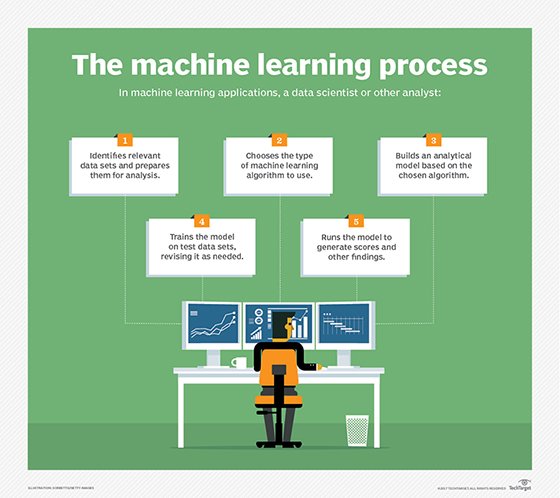
Machine learning services in cloud aim for AI accessibility
Machine learning is a complex technology that requires data science skills. Cloud providers have tried to change that and make AI more accessible. But are those efforts working?
Public cloud providers continue to roll out AI and machine learning services that they say make the technology accessible to even the least-experienced developers. And while they do reduce the learning curve to create machine learning apps, these services have room for growth.
Amazon SageMaker and Google Cloud AutoML are two examples of machine learning services that, according to their vendors, don't require an organization to have dozens of AI experts or data scientists on staff to use.
Cloud AutoML has a graphical interface that enables users to easily train object recognition and image detection models. The service reduces many of the traditional requirements to get machine learning systems up and running, such as the manual setup of data, the model training process and the deployment to applications. Moreover, it provides the ability to use natural language processing -- via Cloud AutoML Natural Language -- on the front end.
Amazon SageMaker is another machine learning-as-a-service tool that accelerates the development of learning models and their associated data, as well as deployment to the AWS cloud platform.
Just like with Cloud AutoML, ease of use is the focus of SageMaker. It includes capabilities such as an integrated Jupyter notebook, which enables quick access to the data sources that power a machine learning engine. SageMaker also offers off-the-shelf algorithms optimized for large data sets using the AWS platform.

Cloud providers recognize talent gap
The trouble with traditional, well-established machine learning systems is that you have to be pretty savvy in the ways of AI and machine learning to effectively use them. The more complex the technology, the more mistakes -- such as using the same algorithms for different types of machine learning processing or not effectively spotting data outliers -- are likely to occur.
These challenges stem largely from a shortage of deep analytics talent, or those with skills in big data and machine learning. It's simply a fact that, without some experience in these areas, a company won't be able to properly prepare data for machine learning, develop the algorithms or build and deploy the learning model.
In response, AWS and Google now aim to reduce that learning curve. Both casual users and developers will likely gravitate to machine learning services, like SageMaker and Cloud AutoML, for a few reasons, including:
- Reduced room for error. These products guide users through the process of setting up and using a machine learning-based system, and the reduction of errors will more than make up for the sandbox environment -- which is limited compared to some other machine learning tools that require more experience -- these services place you in.
- Broader accessibility of the technology. Much like the GUI made it easier for everyone to use computers, services like SageMaker and Cloud AutoML will expand the use of machine learning to those who would not typically attempt to use this technology.
- Increased productivity. Since these services reduce the time it takes to create machine learning systems, they enable developers to move more quickly and remain focused on what they care about most: building applications.
Room for growth
That said, these cloud-based AI services aren't a slam dunk yet. They still require developers to have a rudimentary understanding of some machine learning concepts, such as how to build a model from existing data.
That said, services like SageMaker and Cloud AutoML will continue to evolve over the next few years, as will vendors' approaches to abstracting developers and users away from the complexity of machine learning. At some point, we'll find our happy place between too simple and too complex.








